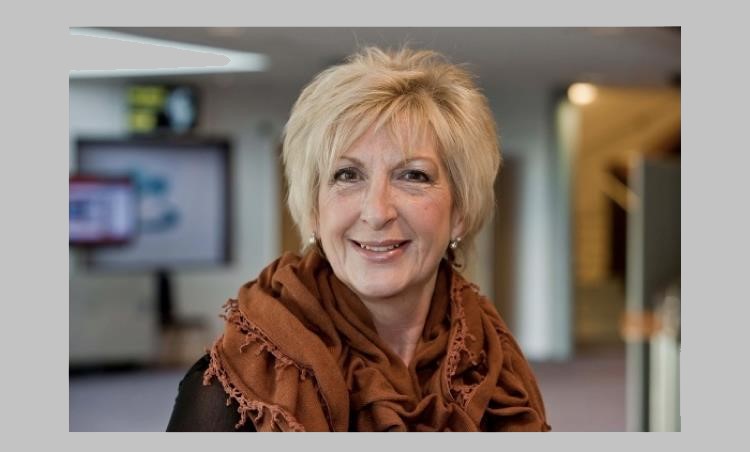Alison Fuller: The Dedicated Audience Producer Behind BBC Question Time

In the world of television production, many behind-the-scenes professionals work tirelessly to make popular programmes a success. One such individual is Alison Fuller, a name synonymous with the BBC’s flagship political debate programme, Question Time. As an audience producer, Alison Fuller has played a crucial role in shaping the dynamic interactions that make the show compelling. This article delves into Alison Fuller’s extensive career, her vital contributions to Question Time, her enduring commitment to audience engagement, and the unfortunate illness that brought a sudden pause to her long-standing service.
Alison Fuller: A Career in Television Production
Alison Fuller has dedicated over three decades to television production, specialising in audience management and production coordination. Starting her career as a production secretary at Central TV in 1982, she developed a strong foundation in broadcast production, eventually moving towards audience-focused roles.
Since 1990, Alison has been an influential figure in audience production, first freelancing for the BBC and then solidifying her role as the Audience Producer for Question Time under Mentorn Media. Over 26 years at Mentorn Media, she became a pivotal force in recruiting and managing the live studio audiences, ensuring that Question Time remains a vibrant forum reflecting diverse public opinion.
Alongside her BBC commitments, Alison has also been the owner of Full House Audience Management since 1990, highlighting her entrepreneurial spirit and dedication to quality audience curation across various television productions.
Alison Fuller and BBC Question Time
Question Time is a cornerstone of British political broadcasting, engaging viewers in lively debates involving politicians, experts, and the public. While the panelists often receive the limelight, the audience is equally critical to the programme’s success. Here, Alison Fuller’s expertise shines.
As Audience Producer, Alison Fuller was responsible for recruiting, briefing, and managing the audiences who participate in the show. Her role extended beyond logistical tasks to ensuring that the audience represented a broad spectrum of political opinions, social backgrounds, and age groups. This diverse audience dynamic is essential to the authenticity and richness of the discussions on Question Time.
Throughout her tenure, Alison liaised with production teams to balance audience composition carefully. Her work helped the programme maintain its reputation as an open platform for public discourse, where real voices are heard, challenged, and celebrated.
The Importance of Audience Production in Political Programming
The audience’s role in political programming cannot be overstated. Unlike scripted shows, live audience reactions—cheers, boos, applause, and questions—contribute directly to the programme’s atmosphere and flow.
Alison Fuller’s role as Audience Producer was to cultivate this environment. She understood that audience members not only react but also influence the dialogue, sometimes steering the conversation in new and unexpected directions.
Her experience and attention to detail ensured the audience’s energy was authentic, contributing to the show’s credibility and impact. By selecting a balanced and representative audience, Alison helped Question Time reflect the nation’s diverse perspectives on political and social issues.
Alison Fuller’s Illness and Impact on Question Time
In early 2025, news emerged that Alison Fuller had fallen ill following a sudden and brief illness. This unfortunate development deeply affected her colleagues and the Question Time community, who held her in high regard for her professionalism and warm nature.
Fiona Bruce, the long-time host of Question Time, publicly acknowledged Alison’s illness on air, visibly emotional as she expressed the shock and sadness felt across the production team. Alison’s illness and subsequent passing marked a profound loss for the BBC and the many lives she touched through her work.
Her death underscored the often unseen sacrifices and pressures faced by those behind the scenes in television production. Alison’s commitment to excellence and dedication to fostering genuine public engagement remained clear until her final days.
The Legacy of Alison Fuller in Television Production
Alison Fuller’s legacy is one of passion, dedication, and influence. Over 30 years, she has shaped how audiences engage with political discourse on television, ensuring that Question Time remains a vital space for public participation.
Her career is a testament to the vital role audience producers play in television, often working away from the camera but profoundly impacting the viewer experience. Through her work with Mentorn Media and the BBC, Alison has left a lasting imprint on British broadcasting.
Colleagues remember her as a meticulous professional who combined organisational skills with empathy and a deep understanding of the political landscape and the importance of balanced public representation.
Alison Fuller: Beyond the Studio
While Alison Fuller’s professional life centred around television, her contributions extend beyond mere logistics. Her entrepreneurial efforts with Full House Audience Management reflect her wider commitment to advancing audience engagement in the industry.
Her ability to manage large and diverse audiences speaks to her exceptional organisational skills and understanding of human dynamics, which are crucial in live television production.
Alison’s career path also highlights the evolution of television production over the last four decades, from traditional studio environments to the complex, multi-platform media landscape today.
Alison Fuller’s Role in the BBC and Mentorn Media
Mentorn Media, the production company behind Question Time, has relied heavily on Alison Fuller’s expertise. Her deep institutional knowledge and experience made her an invaluable asset.
At the BBC, she was more than just a producer; she was a guardian of the programme’s ethos—ensuring that the democratic spirit of Question Time was upheld by the audience’s composition and conduct.
Her work as a freelancer before joining Mentorn Media exemplifies the commitment and flexibility required in the broadcasting industry, navigating various roles and responsibilities to support quality television production.
Conclusion
Alison Fuller’s career encapsulates the essential but often overlooked world of audience production in television. Her dedication to Question Time and broader contributions to British broadcasting highlight her as a key figure behind one of the country’s most influential political shows.
Her sudden illness and passing in 2025 brought a poignant reminder of the human stories behind the camera. Yet, Alison Fuller’s legacy endures through the audiences she brought together and the programmes she helped shape.
In remembering Alison Fuller, the industry honours a professional who understood that behind every great show is a great audience — and behind every great audience, a great producer.



